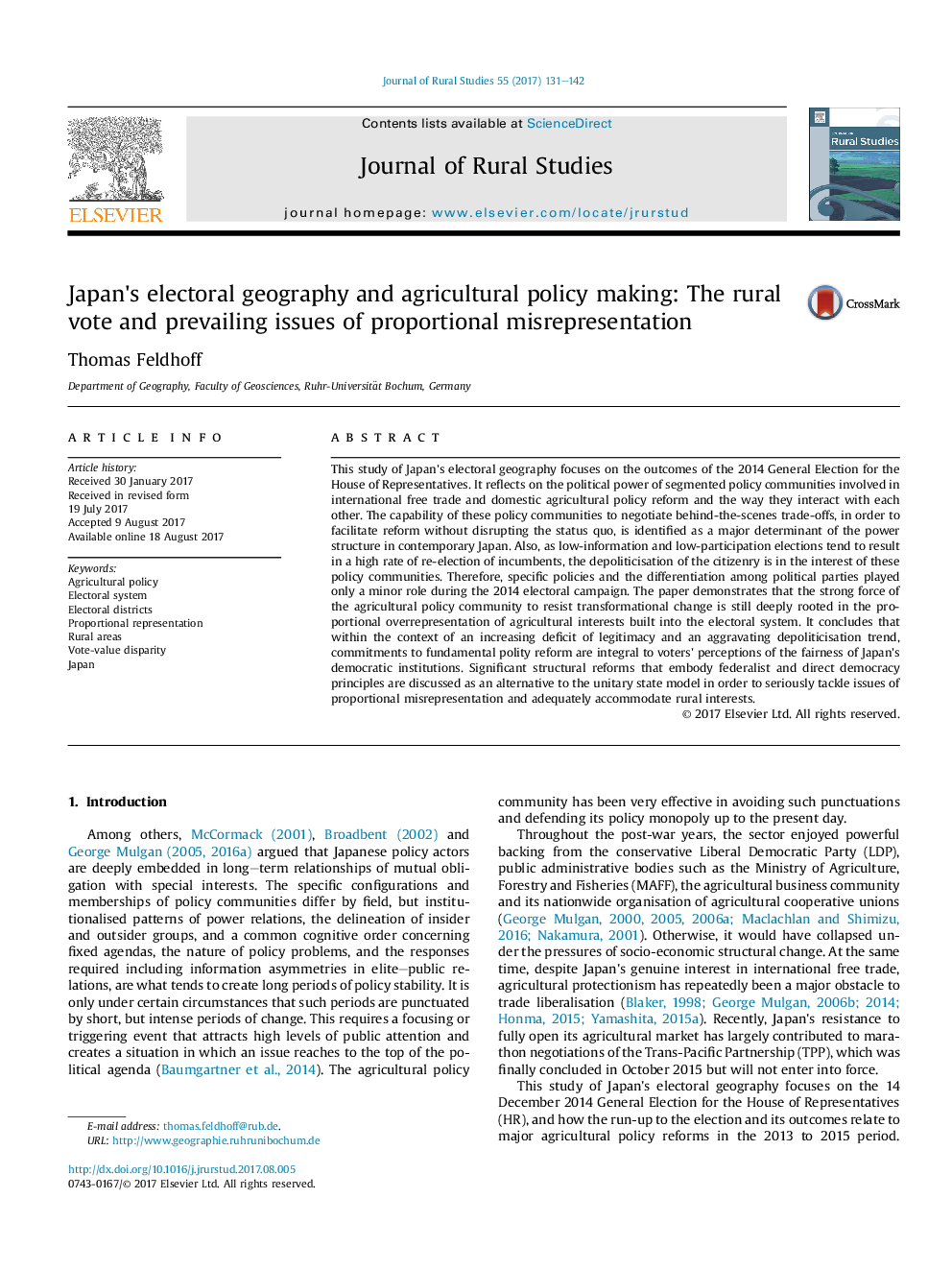| کد مقاله | کد نشریه | سال انتشار | مقاله انگلیسی | نسخه تمام متن |
|---|---|---|---|---|
| 6459941 | 1421776 | 2017 | 12 صفحه PDF | دانلود رایگان |
- Mapping of national election data to illustrate Japan's geography of political misrepresentation.
- Revisiting the enduring nexus between elections and agricultural policy making in favour of particularistic interests.
- Analysing the capability of segmented policy communities to facilitate reform without disrupting the status quo.
- Identifying the need to remove systemic causes of political misrepresentation and to strengthen transparent policy debate.
- Advocating significant structural reforms of the political system that embody federalist and direct democracy principles.
This study of Japan's electoral geography focuses on the outcomes of the 2014 General Election for the House of Representatives. It reflects on the political power of segmented policy communities involved in international free trade and domestic agricultural policy reform and the way they interact with each other. The capability of these policy communities to negotiate behind-the-scenes trade-offs, in order to facilitate reform without disrupting the status quo, is identified as a major determinant of the power structure in contemporary Japan. Also, as low-information and low-participation elections tend to result in a high rate of re-election of incumbents, the depoliticisation of the citizenry is in the interest of these policy communities. Therefore, specific policies and the differentiation among political parties played only a minor role during the 2014 electoral campaign. The paper demonstrates that the strong force of the agricultural policy community to resist transformational change is still deeply rooted in the proportional overrepresentation of agricultural interests built into the electoral system. It concludes that within the context of an increasing deficit of legitimacy and an aggravating depoliticisation trend, commitments to fundamental polity reform are integral to voters' perceptions of the fairness of Japan's democratic institutions. Significant structural reforms that embody federalist and direct democracy principles are discussed as an alternative to the unitary state model in order to seriously tackle issues of proportional misrepresentation and adequately accommodate rural interests.
Journal: Journal of Rural Studies - Volume 55, October 2017, Pages 131-142
